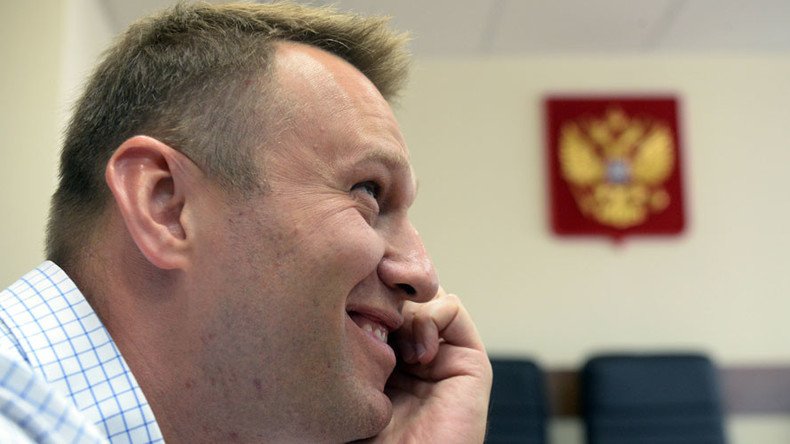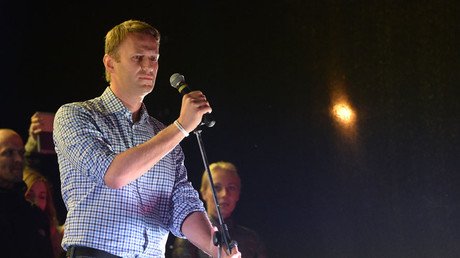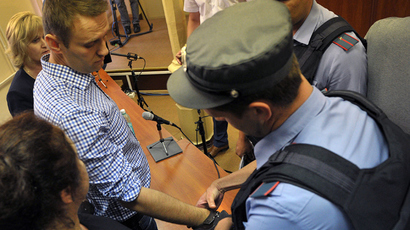Supreme Court vacates sentence for Russian whistleblower Navalny

The Presidium of the Russian Supreme Court has ruled to vacate a five-year suspended sentence given to prominent Russian anti-corruption activist Aleksey Navalny and ordered a retrial of the 2009 embezzlement case.
According to Russian news agencies reporting from the court room on Wednesday, the ruling was based on an earlier statement from the European Court of Human Rights (ECHR) as well as some new details in the case. The case will be reconsidered by the Leninsky District Court of the northern Russian city of Kirov, but the judges will be different.
In August this year, Aleksey Navalny asked the Supreme Court to vacate his 2013 conviction for embezzlement after the ECHR ruled that Russian courts had violated the right to a fair trial in his case.
The Strasbourg court also ruled that Russian judges had allegedly interpreted the Criminal Law in a free and unpredictable manner, harming the interests of Navalny and another person convicted in the case. It also established an alleged “connection” between the convict’s anti-corruption activities and the charges brought against him by the Russian Investigative Committee.
As a result, the ECHR ordered the Russian authorities to pay the claimants over €87,000 (US$98,000) in damages.
However, the ECHR refused to recognize Navalny’s case as political.
The main events of the so-called ‘Kirovles case’ took place in 2009. Navalny worked as a volunteer aide to then-Kirov Governor Nikita Belykh, dealing with reforms of regional industry. Investigators said that they had found that Navalny ordered a local businessman, Pyotr Ofitserov, to set up an intermediary company and then persuaded the administration of the local state corporation Kirovles to sign a contract with this company on unfavorable terms. As a result, Kirovles allegedly made multimillion-dollar losses while the middleman company was making a profit. The investigation lasted until 2013 and ended in Navalny’s conviction and five-year prison sentence, which was suspended with a fine of 500,000 rubles (about $15,000 at 2013 rate).
It should be noted that in June this year, Belykh lost his post as Kirov governor after being caught red-handed receiving a $446,000 bribe and is currently in pre-trial custody.
In comments on the Wednesday ruling by the Supreme Court Presidium, Navalny said he considered the ordered retrial as another form of pressure.
“I have not the slightest desire to go to Kirov. This was done only to obstruct my political activities and my investigations. I should have been acquitted today, but the court refused to execute the ECHR’s decisions. We are going to file a complaint to the Council of Europe,” the activist told reporters after the court session.
If Navalny is eventually acquitted he will have an opportunity to take part in the 2018 presidential elections (under current Russian law he is forbidden from running as a presidential candidate for 10 years after the end of the suspended term). The activist first voiced his presidential ambitions in a televised interview in April 2013.
In early September 2013, Navalny participated in the Moscow mayoral elections and came second with about 27 percent of votes, while incumbent Sergey Sobyanin won with about 51 percent.














